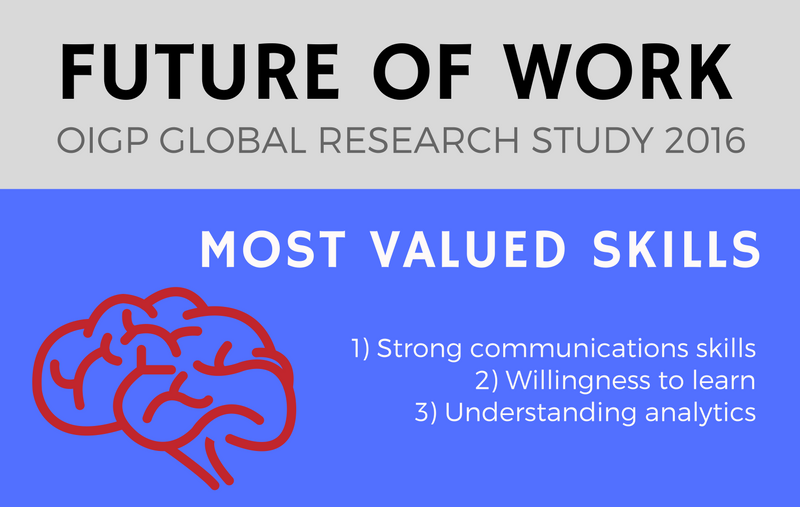Harmonics, the Irish partner of OI Global Partners (one of the largest career consulting partnerships), has released the results of a proprietary survey of human resources professionals from North America, Europe and Australia. The goals of the survey were to identify the following:
- the skills employees must have to be competitive today;
- the most significant people challenges currently facing organizations;
- the roles most at risk; and
- the most effective ways to develop talent.
Clients of Harmonics and their counterparts with OI Global Partners across the globe shared their first-hand knowledge and insights in the Future of Work Survey.
John Fitzgerald, Managing Director of Harmonics, said, “The results are really insightful. Despite the differences in location and industry, there are common challenges and risks which our clients are facing and they are implementing solutions that are effective in managing an increasingly diverse workforce.”
Among the key findings of the survey, respondents indicated that the skills employees must have to be competitive are strong communication ability (78%) and a willingness to learn (66%). Understanding analytics came in third with 50% of the respondents citing this was a key skill.
John Fitzgerald noted, “Being open to learn, with solid reading, listening and thinking ability is seen as the second most valued skill. This can be seen as a reflection of how organisations are going through such rapid change and are looking for employees to adapt to change and take more ownership of their career development so they can bridge the growing skills gap.”
The most significant people challenges currently facing organizations are (1) attracting and hiring talent; (2) adapting to change; and (3) retaining talent.
The roles most at risk or in decline are:
- administrative roles;
- middle management;
- back office;
- support services; and
- technical roles.
“This is a reflection of the automation of roles – mobile internet, cloud technology, processing power, big data and the Internet of Things are all drivers of change,” commented John Fitzgerald.
Internal career development programmes were seen as the most effective way of developing talent according to 47% of the respondents, followed by career conversations (35%) and coach training.


